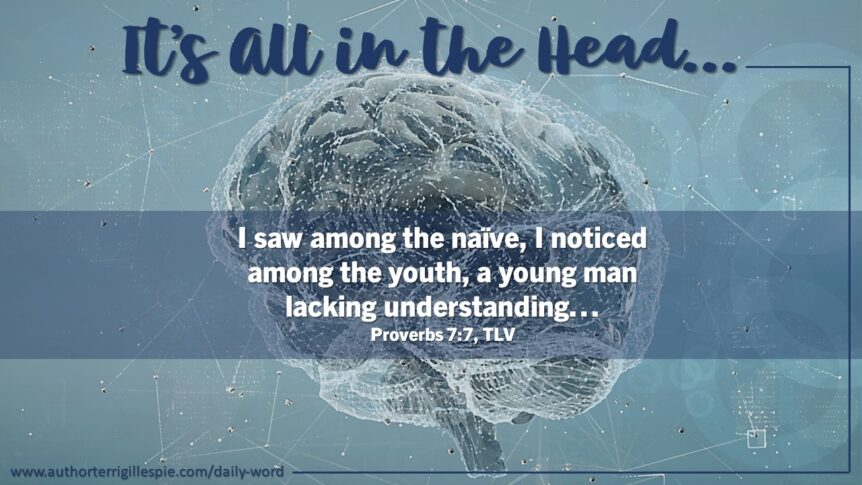I saw among the naïve, I noticed among the youth, a young man lacking understanding… Proverbs 7:7, TLV
 It’s All in the Head . . . Ever wonder why teenagers struggle with a lack of understanding and a lot of naivety? Why do they make decisions based on emotions rather than logic? Advances in science now provide a biological answer — and it’s not just rampant hormones.
It’s All in the Head . . . Ever wonder why teenagers struggle with a lack of understanding and a lot of naivety? Why do they make decisions based on emotions rather than logic? Advances in science now provide a biological answer — and it’s not just rampant hormones.
It’s in the Brain
These brilliant scholars have identified an area of the brain called the amygdala*. It is responsible for those visceral, immediate reactions like fear and aggressive behavior. This region develops early, which explains a lot.
The area of the brain that controls logic and reasoning before action is called the frontal cortex**. This part develops later and continues to mature well into adulthood.
Pictures of the brain in action show that adolescents’ brains work differently than adults when they make decisions or solve problems. Their amygdala tends to override their underdeveloped frontal cortex when it comes to their actions and behaviors.
Research has also shown that the use of drugs and alcohol during the teen years can change or delay the development of the frontal cortex.
These brain differences don’t mean that young people can’t make good decisions or tell the difference between right and wrong. It also doesn’t mean that they shouldn’t be held responsible for their actions. However, an awareness of these differences can help parents, grandparents, teachers, mentors, and clergy better understand, anticipate, and manage the behavior of adolescents.
In today’s proverb, King Solomon laments the young person’s poor decision-making. He follows the journey to its sad conclusion.
Knowing what we know now about brain function and the sorry-path this young man follows, I think we’d all go out and stop junior from following the hussy.  We’d probably try to bop his frontal cortex in the hopes of him thinking more logically.
We’d probably try to bop his frontal cortex in the hopes of him thinking more logically.
All kidding aside . . .
All kidding aside, knowing this as parents, grandparents, teachers, mentors, and clergy, we can better help our young people. It’s also a good reminder that too much time alone and on the computer can open opportunities for temptation that their brains are not able to process.
“My son, keep my words and treasure my mitzvot [commandments] within you.” (vs. 1, TLV)
 “Keep my words . . .
“Keep my words . . .
The line in this proverb “keep my words” is important. They indicate that there is communication between the father and the son—or daughter. Communication is more than telling a child what to do. As our children age, communication is even more important.
Even more essential is that our children see us live the life we teach. That our lives are the most decisive lesson they will experience. Reading, studying, and living Proverbs with our families will go far in that development.
What an honor to support our young people with wisdom and knowledge so that they can develop their frontal cortex, and most importantly develop insight, discernment, and understanding.
May we support our young people with wisdom and knowledge, my friends.
Shabbat Shalom!
* The amygdala is one of two almond-shaped clusters of nuclei located deep and medially within the temporal lobes of the brain’s cerebrum in complex vertebrates, including humans. Shown to perform a primary role in the processing of memory, decision making, and emotional responses (including fear, anxiety, and aggression), the amygdalae are considered part of the limbic system.
** The entirety of the frontal cortex can be considered the “action cortex”, much as the posterior cortex is considered the “sensory cortex”. It is devoted to action of one kind or another: skeletal movement, ocular movement, speech control, and the expression of emotions.



